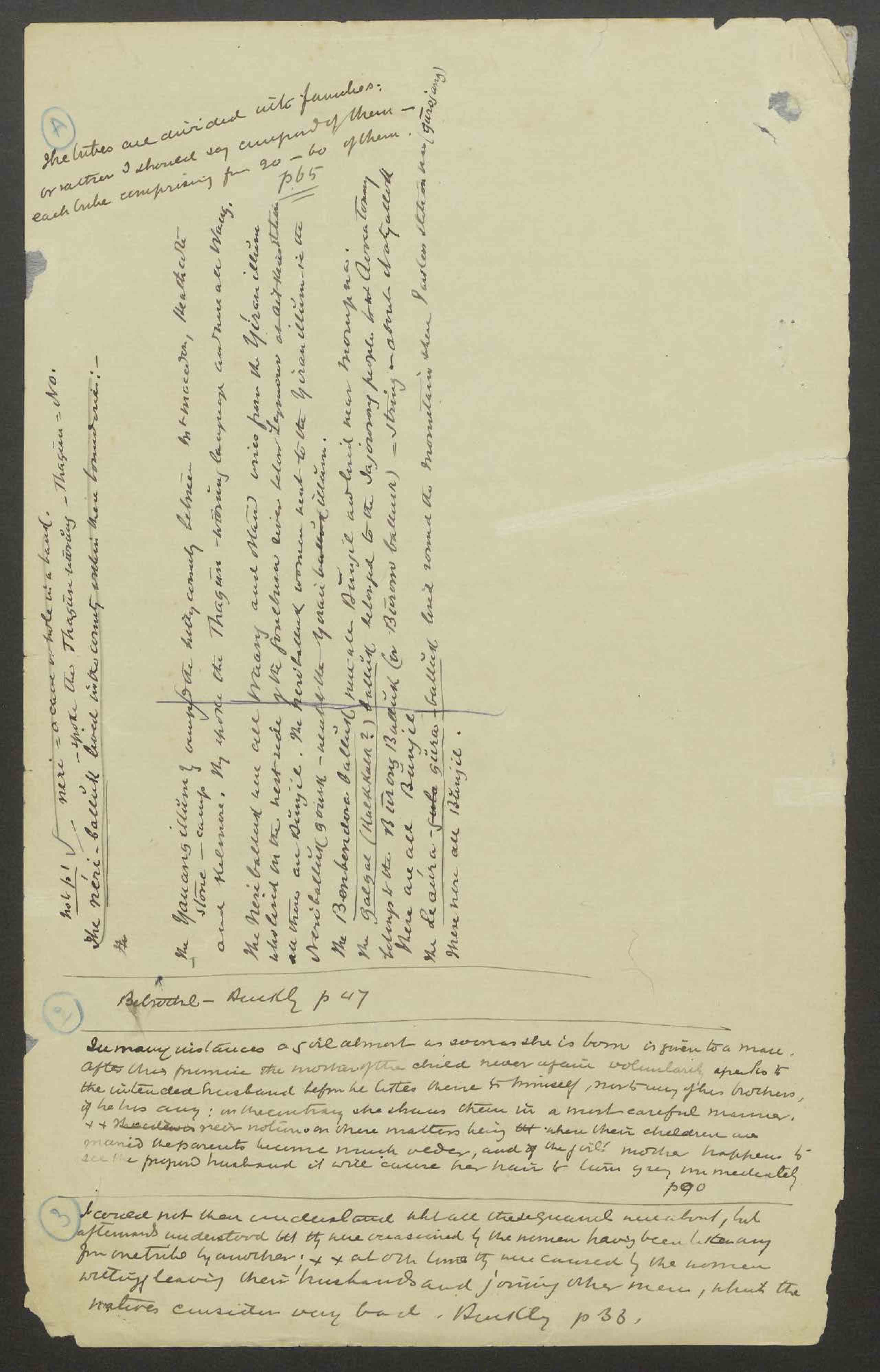Notes by Howitt on Kulin from Barak

Transcription - Page 2
A
The tribes are divided into families:
or rather I should say composed of them –
each tribe comprising from 20 - 60 of them.
P.65
[written sideways on page]
Note p 1 neri = a cave or hole in a bank.
The néri-ballŭk - spoke the Thagūn wūrŭng – Thagūn = No.
- lived in the country within these boundaries: -
The Yauangillŭm owned the hilly country between Mt Macedon, Heathcote
stone – camp
and Kilmore. They spoke the Thagŭn-wūrŭng language and were all Waang.
The Neri balluk were all Waang and Married wives from the Yiran illŭm
who lived on the west-side of the Goulburn River below Seymour at Aitken's Station
all these are Bŭnjil. The Neri balluk women went to the Yiran illŭm – ie the
Neri ballŭk gourk – went to the Yiran [ballŭk- crossed out] illŭm.
The Benbendora ballŭk [underlined] were all Būnjil and lived near Mooroopna.
The Galgal (Kalkkalk?) ballŭk [underlined] belonged to the Jajowrung people [to - crossed out] Avoca Tommy
belongs to the Būrong Ballŭk (or Būrom – balluck) = string – about Natyallok
These are all Bŭnjil.
The Leaúra-[gula - crossed out] gŭra-ballŭk [underlined] lived round the mountains where Parker's station was (gūrojang)
These were all Bŭnjil.
-----------------------------------------------------------------------------------------
2 Betrothal - Buckley p 47
In many instances a girl almost as soon as she is born is given to a man.
After this promise the mother of the child never again voluntarily speaks to
the intended husband before he takes herre [sic] to himself, nor to any of his brothers,
if he has any: on the contrary she shuns them in a most careful manner.
x x [The other is- crossed out] Their notions on these matters being that when their children are
married the parents become much older, and if the girl's mother happens to
see the proposed husband it will cause her hair to turn grey immediately p 90
----------------------------------------------------------------------------------------------------------------
3 I could not then understand what all these quarrels were about, but
afterwards understood that they were occasioned by the women having been taken away
from one tribe by another; x x at other times they were caused by the women
willingly leaving their husbands and joining other men, what the
natives consider very bad. Buckley p 33.
Document Details
